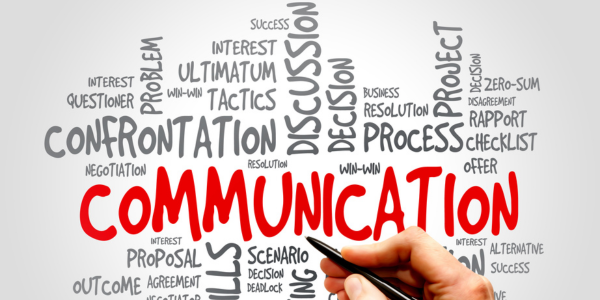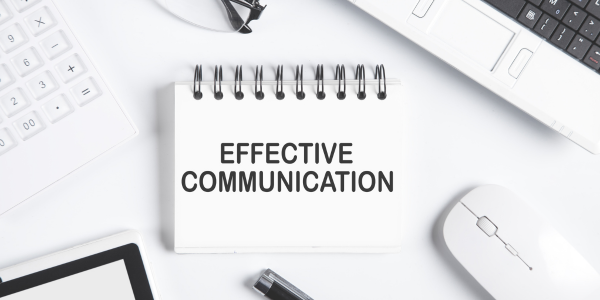 Effective communication is essential in all aspects of life, whether it’s in personal relationships or professional settings. Good communication skills help us express ourselves clearly, understand others, and build stronger connections. However, not everyone is a natural communicator, and it’s common to struggle with certain aspects of communication, such as public speaking, writing, or active listening. The good news is that communication skills can be improved with practice and effort. In this blog, we will discuss some practical tips and strategies for improving your communication skills, so you can become a more confident and effective communicator.
Effective communication is essential in all aspects of life, whether it’s in personal relationships or professional settings. Good communication skills help us express ourselves clearly, understand others, and build stronger connections. However, not everyone is a natural communicator, and it’s common to struggle with certain aspects of communication, such as public speaking, writing, or active listening. The good news is that communication skills can be improved with practice and effort. In this blog, we will discuss some practical tips and strategies for improving your communication skills, so you can become a more confident and effective communicator.
How to work on your Communication Skills?
Improving communication skills takes practice, dedication, and self-awareness. Here are some ways you can work on your communication skills:
- Listen actively: Communication is a two-way process, and listening actively is just as important as speaking clearly. Practice active listening by paying attention to the speaker, asking clarifying questions, and summarizing what you heard to ensure you understood correctly.
- Be clear and concise: Choose your words carefully and be mindful of your tone and body language. Speak clearly and try to avoid using jargon or technical language that your audience may not understand.
- Practice public speaking: Public speaking can be nerve-wracking, but the more you do it, the more comfortable you will become. Join a public speaking club or practice in front of a mirror or with a friend.
- Seek feedback: Ask for feedback from trusted friends, colleagues, or a mentor. Take their feedback constructively and use it to improve your communication skills.
- Read and write more: Reading and writing can help you develop your communication skills by expanding your vocabulary, improving your grammar, and helping you organize your thoughts more effectively.
- Practice empathy: Try to see things from other people’s perspectives and understand their feelings and motivations. This can help you communicate more effectively and build stronger relationships.
Remember, communication is a lifelong process, and it takes time and effort to improve your skills. Start small and focus on making incremental improvements over time.
Also Read: 10 Ways to Improve Office Communication
If you are looking to improvise your communication skills, then we are here to rescue you. AMCAT’s My English is an online tool designed to help individuals improve their English language skills. The tool includes a diagnostic test that assesses the user’s proficiency in various areas, such as grammar, vocabulary, and pronunciation. Based on the results, the tool generates personalized learning modules and interactive exercises that enable users to practice and develop their skills. My English provides immediate feedback on exercises and allows users to track their progress over time. It’s an excellent resource for individuals who want to improve their communication skills for personal or professional development.
Here are some steps you can take to work on your communication skills with My English:
- Take the test: My English includes a diagnostic test that assesses your communication skills. Take the test to identify your strengths and weaknesses.
- Identify your areas for improvement: Review the results of the diagnostic test and identify the areas where you need to improve. This could include grammar, vocabulary, or pronunciation.
- Use the learning modules: My English includes learning modules on a variety of communication skills, such as speaking, writing, and listening. Work through the modules to develop your skills.
- Practice with the interactive exercises: My English includes interactive exercises that allow you to practice your communication skills in a simulated environment. These exercises include speaking and writing tasks that provide immediate feedback.
- Review the feedback: After completing the exercises, review the feedback to identify areas where you need to improve. Use this feedback to adjust your approach and practice more effectively.
- Set goals and track progress: Set goals for improving your communication skills and track your progress over time. This will help you stay motivated and focused on your development.

Remember, improving your communication skills takes time and effort. Use My English as a tool to support your development, and be consistent in your practice to see the best results.
In the end, we would like to say that improving your communication skills is a process that takes time, effort, and dedication. By practicing active listening, speaking clearly and concisely, practicing public speaking, seeking feedback, reading and writing more, and practicing empathy, you can become a more effective communicator. Remember, communication is a two-way process, so it’s important to be mindful of both what you say and how you listen. By improving your communication skills, you can build stronger relationships, advance your career, and achieve greater success in all aspects of your life. So, start practicing today and watch as your communication skills improve over time.
Also Read: Barriers of Communication: List and Tips to Overcome Them
FAQs
Q1: What is effective communication?
Ans: Effective communication is the ability to convey information clearly and accurately, while also being able to listen actively and understand others.
Q2: Why is effective communication important?
Ans: Effective communication is important in all aspects of life, from personal relationships to professional settings. It enables us to build stronger connections, understand others’ perspectives, and achieve our goals more effectively.
Q3: What are some common barriers to effective communication?
Ans: Common barriers to effective communication include language barriers, cultural differences, physical barriers, and emotional barriers.
Q4: How can I improve my communication skills?
Ans: To improve your communication skills, you can practice active listening, be clear and concise in your speech, practice public speaking, seek feedback, read and write more, and practice empathy.
Q5: What are some tips for effective written communication?
Ans: Some tips for effective written communication include using clear and concise language, organizing your thoughts before writing, proofreading and editing your work, and being mindful of your audience.
Q6: How can I improve my nonverbal communication skills?
Ans: To improve your nonverbal communication skills, you can practice maintaining eye contact, using appropriate facial expressions, using open body language, and being aware of your tone of voice.
Q5: How can I communicate effectively in a team?
Ans: To communicate effectively in a team, you can establish clear goals and expectations, encourage open communication, be respectful of other’s opinions, and practice active listening.

























